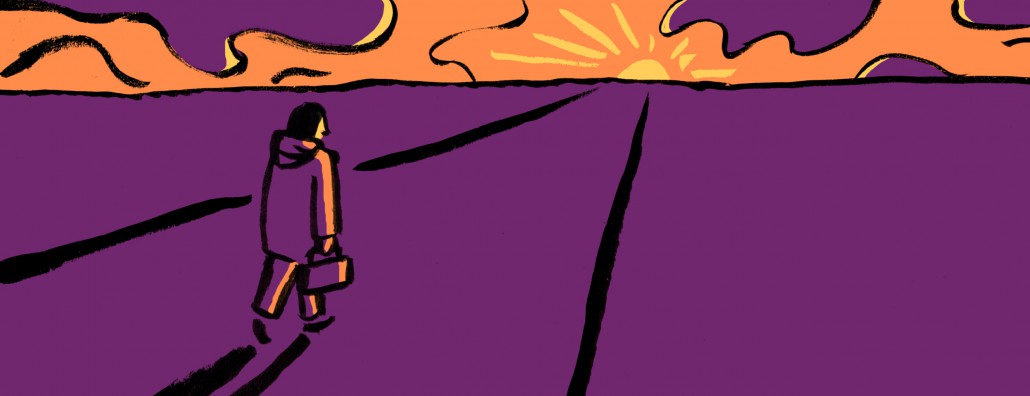
My name is Ella* and – as a teenager – I was trafficked from my home in central Africa to Spain.
I was exploited for many years there and later trafficked to Ireland and exploited all over the island, constantly being moved around various brothels.
Following a raid on a brothel, I was arrested and charged under the Sexual Offences Act. I was also charged with immigration offences. The man who purchased me that day was not charged.
Soon afterwards, I appeared in court and was found guilty. What upset me was the fact that I was named in local papers as though I was the criminal. This was done despite the fact that I had disclosed my story already.
I was later formally identified as a suspected victim of trafficking by the State. An identified victim of trafficking can access rights such as a temporary immigration permission to remain in the State, subject to continuing to assist An Garda Síochána with an investigation.
I was assisted by an organisation that works with women involved in prostitution and victims of trafficking. They offered me counselling, as well as English classes, and I was very grateful.
It meant a lot to be told that I had rights: that there were other people like me and that I could be protected and assisted. I wish I had been identified earlier and given information on my rights straight after I was arrested. I now understand such information is also a right as expressed in the Council of Europe Convention against Trafficking in Human Beings. Early legal intervention would have ensured that I was not punished by the courts.
Having been under the rule of a trafficker so long, I feel empowered to know I have rights. It has helped me start to feel strong again.
I cooperated fully with An Garda Síochána, even though I was petrified my trafficker would find me. He was eventually prosecuted and imprisoned in the UK.
A Victim and Not a Criminal
I went back to court later and was acquitted of the offences. However, so far, this has not been corrected on my criminal record.
This record states that I was arrested for solicitation and that I committed an immigration offence, as I could not produce an ID when I was arrested. These things make me seem like a criminal. In fact, I was in a situation of forced prostitution and my trafficker was the criminal who had used false documents to bring me to Spain and later to Ireland.
I went to the Immigrant Council of Ireland to seek assistance in applying for a more permanent form of residency. After five years of residence in Ireland, I applied for citizenship. I am still waiting for a decision. I am worried that my application will be refused because of the criminal record, which continues to haunt me. I want to work as a care professional with the elderly or with children, but I worry vetting will reveal my record. I feel I can never escape my past – despite the fact that I was a victim and not a criminal.
In helping me to secure citizenship, the Immigrant Council has written to the Minister for Justice to highlight that, under the Council of Europe Convention against Trafficking in Human Beings and the EU Directive Preventing and Combatting Trafficking in Human Beings, victims should not be punished for activities they were compelled to commit as a consequence of being subject to trafficking.
I dream of becoming a citizen of Ireland. I believe the wrongs will soon be righted and that I can finally leave my past behind me.
*Name has been changed to protect the identity of the woman featured in this piece.

This is one of a series of personal stories of equality and human rights that we are publishing as part of Make Rights Real. Follow us on Facebook or Twitter for updates and news.




